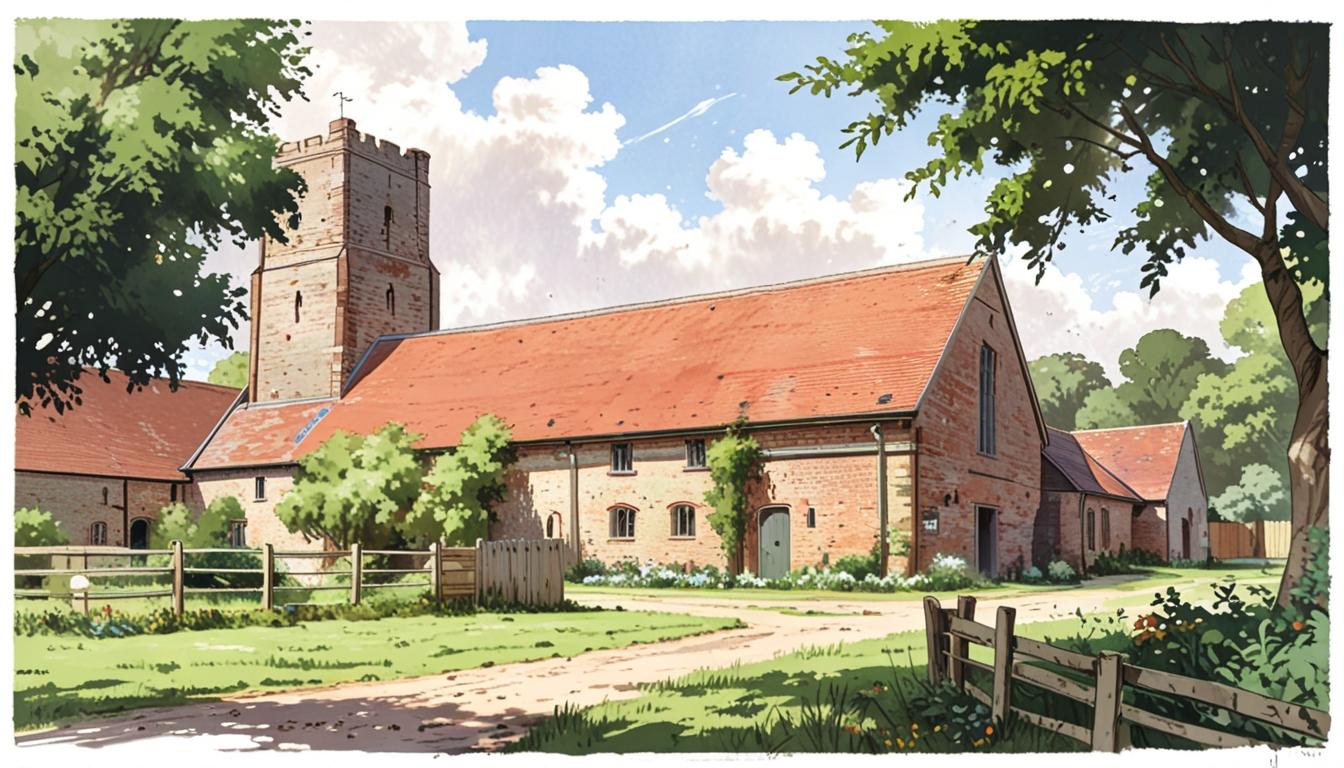Local Outcry Over Luxury Conversion in Birthplace of Lord Nelson
In the tranquil village of Burnham Thorpe, Norfolk, plans for a luxury barn conversion have ignited significant backlash from the community. This site, steeped in historical significance as the birthplace of the illustrious naval commander Lord Nelson, is set to undergo transformation into an opulent residence, a move many locals see as a direct threat to its character and heritage.
The West Norfolk Council recently granted approval for the project, which will convert a cluster of historic barns situated adjacent to the Grade I listed All Saints' Church. This church is notably where Lord Nelson was baptised in 1758. Many residents have voiced their opposition during the consultation process, arguing that the barns, which have remained unutilised for decades, should be preserved as a vital part of the village’s historical attractions. Locals maintain that they draw numerous history enthusiasts to Burnham Thorpe each year, enriching the community and its cultural landscape.
Lady Anne Glenconner, a prominent local resident and former maid of honour to Queen Elizabeth II, has emerged as a vocal leader of the opposition. Speaking to local media, she expressed her concerns about the development, stating, “This very special place of national importance is under threat from a planning application... Those seeking peace and prayer in the church yard will be presented with a swimming pool, car parking area and terrace with large picture windows.” Lady Glenconner highlighted the detrimental impact such features would have on the serene ambience traditionally surrounding the church, calling for alternative uses of the barns that would better preserve their historic essence.
The council’s defence of the project hinges on the argument that it aims to provide a “long-term viable use” for the outdated buildings. According to council officers, this is crucial for maintaining the character of the site. They noted that scaled-down amendments to the initial plans—such as the removal of a proposed swimming pool—were made in response to community feedback, although many remain dissatisfied with even the approved scaled-down version.
Burnham Thorpe's historical significance is further validated by recent developments in the area. The Holkham Estate has recently acquired the Lord Nelson pub, which has reopened after extensive restoration following a five-year closure. Historically frequented by Admiral Nelson himself, the pub is now being revitalised as a community hub, showcasing artefacts related to Nelson’s life while also maintaining the establishment's traditional character. This effort has been well-received by locals, reflecting a desire within the community to preserve and celebrate their rich heritage.
The juxtaposition of the barn conversion with the revitalisation of the pub emphasises a broader discussion about heritage and modern development within Burnham Thorpe. Many residents are questioning the need for luxury developments that serve as private residences, potentially compromising the village's historical charm and appeal. They argue for solutions that prioritise community enrichment over individual exclusivity.
As the community grapples with these developers’ plans, the fate of the barns remains uncertain. The debate encapsulates a wider tension between development and preservation—a challenge faced by many historical communities across the UK. With passionate voices like Lady Glenconner rallying for the conservation of Burnham Thorpe's unique identity, the villagers are determined to ensure that any changes align with their vision for a community that respects its past while looking towards the future.
Ultimately, the villagers await the outcome of their efforts to safeguard what they consider a national treasure, hoping that their voices will resonate beyond the boundaries of this Norfolk hamlet.
Reference Map:
- Paragraph 1 – [1], [7]
- Paragraph 2 – [1], [2]
- Paragraph 3 – [1], [2], [5]
- Paragraph 4 – [1], [7]
- Paragraph 5 – [3], [4]
- Paragraph 6 – [1], [4], [5]
Source: Noah Wire Services
